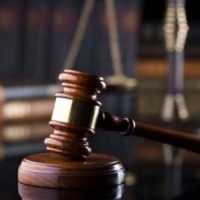Do You Need to Appear in Court for Bankruptcy?

People express all kinds of fears about bankruptcy, from how it will impact their credit to their ability to get a job. Some people are also terrified of going to court. Maybe they had a bad experience in a minor criminal case, or they suffered through jury duty and the sight of a judge gives them nightmares.
Fortunately, there is good news. You do not have to go to court in the vast majority of bankruptcy cases. Instead, your interaction with the bankruptcy court will be limited, and your South Florida bankruptcy lawyer can handle most of your appearances.
The Meeting of Creditors
For over 90% of people, their only requirement will be to attend a meeting of creditors. Currently, many courts are holding these meetings remotely due to COVID. Even if you must show up in person to the federal courthouse, it is really nothing to fear. Instead, all you do is meet with the trustee overseeing your case. Your creditors are also invited, though few choose to attend.
At the meeting, you will prove your identity and answer some questions. The trustee might have questions about your income or expenses or some other related issue. For a Chapter 7 bankruptcy, this meeting rarely takes more than 10 minutes. Many clients are done in five. If you file for Chapter 13 protection, the meeting is usually longer because there is more to discuss.
The meeting isn’t even held in a courtroom but is instead held in a conference room. If you have questions, talk to your lawyer.
Disputes about Whether You Can Discharge Debts
Most Chapter 7 bankruptcies are straightforward, but sometimes a creditor will challenge your ability to wipe out a debt. For example, the creditor might think you took out a debt knowing you would never pay it back. A creditor with this concern might attend the Meeting of Creditors.
If the creditor wants to bring a formal challenge to your discharge, they file a lawsuit within the bankruptcy case, which is called an adversary proceeding. If you want to eliminate student loans, for example, then you would need to file an adversary proceeding as well.
Many adversary proceedings are settled so you don’t end up in court. You will only need to go if settlement is impossible and a judge ultimately needs to settle the dispute. At that point, you might have to testify in court, but this rarely happens.
Chapter 13 Confirmation
If you file Chapter 13, then a judge must confirm your repayment plan. This is usually not a big deal unless a creditor objects—and even then, most disputes are resolved before presenting the plan to the judge. In any event, your attorney can attend the confirmation hearing for you.
Give Us a Call
The Plantation bankruptcy attorneys at Nowack & Olson PLLC have more than 40 years of combined experience in this field. We have helped many men and women get a fresh start by wiping out old and burdensome debts. Call us today at 888-813-4737 to schedule a time to meet.
